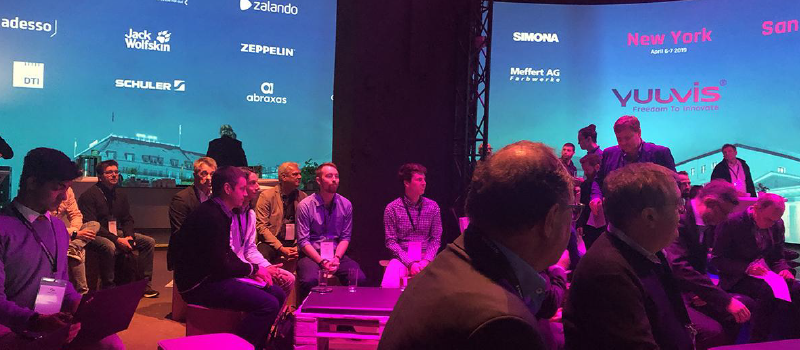What I Learned from Winning a Hackathon
 In August, Yuuvis hosted their very first hackathon in Austin, TX. A few of my friends and I went expecting to have a good time and some free food. Instead, we won! We went home with five thousand dollars in prize money and a complimentary trip to Berlin. What follows is an account of what the event was, and what (we think) led us to victory.
In August, Yuuvis hosted their very first hackathon in Austin, TX. A few of my friends and I went expecting to have a good time and some free food. Instead, we won! We went home with five thousand dollars in prize money and a complimentary trip to Berlin. What follows is an account of what the event was, and what (we think) led us to victory.
Many people that hear I competed in a hackathon think it is a hacking contest – a room full of hackers, dawned in hoodies, breaking into government agencies and your grandmother’s banking account. However, hackathons are usually about quickly building software, not breaking into it. Think ‘hacking something together,’ with too much duct tape and not enough time. There is usually a set time limit – usually 48 hours, and an overarching goal: build software that can solve x problem facing humanity.
The software we developed was aimed to make the job application more efficient.
We used technology such as JSON Resume, Puppeteer, Novoresume, and Pug Templating to make smarter resume templating technology.
We could have done many things better, but here are the things that we did well that I think led us to victory:
-
- Having a team that could communicate: Many teams form at the hackathon, meaning people don’t know each other that well. My team all knew each other and had worked together, meaning we could be blunt with each other at times, but could also trust each other when the outcome wasn’t clear.
- Practical, feature-rich goals: Competing against data scientists and entrepreneurs, we knew that our application would not be the most buzz-word, catchy idea. We opted for something we knew we wanted and something we knew we could build. The end result was a relatively feature-rich application that worked well in the presentation.
- Our workflow was as important as our idea: Using Trello, Google Docs and Github, we were able to quickly divide and conquer. We only had one incident where two people were working on the same feature without knowing it, and we were able to resolve it within minutes.
- Know your judges: Our judges were perceptive towards software that could most likely be used to launch a startup. This meant that the most ambitious ideas were at a slight disadvantage, as well as the final presentations that were not professional.
- Realize that luck does play into it: Most of the teams we competed against were spectacular and many deserved to win. We were able to develop functioning, bug-free software without any unexpected hurdles. Sure there is some skill in that, but luck does play its part.
In November we were flown up to Berlin to present our software to the main Yuuvis headquarters. We presented our software in a large conference room, with most of the audience members being German businessmen and programmers. I confess I am a young programmer, and the experience was surreal and electrifying. Now that I’m back, I’m eager to get back to writing quality software and competing in more competitions.


